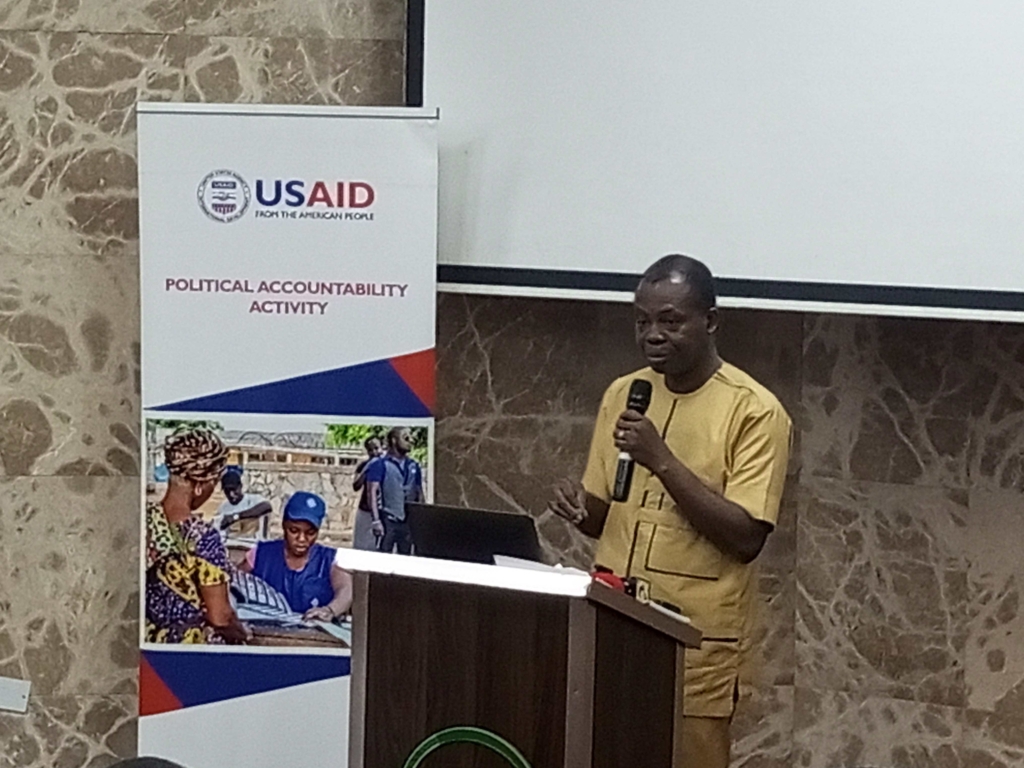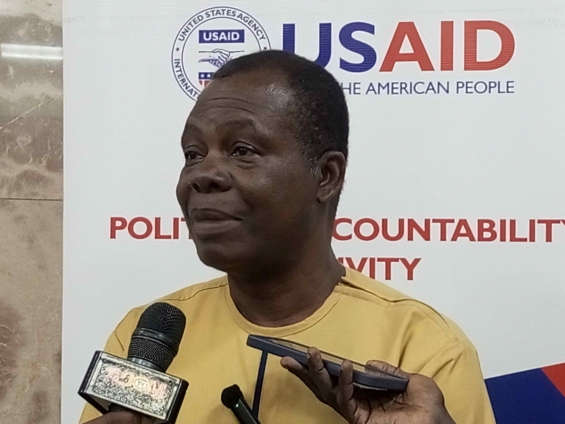Ahead of the December 7 general election, the West Africa Network for Peacebuilding (WANEP), a leading regional peacebuilding organisation, has expressed concern over the high rate of electoral violence in Ghana.
The Regional Director for Monitoring and Evaluation (WANEP), Dr Vincent Azumah, said that in Ghana, within the brief period of the limited voter registration exercise and other exercises the EC had carried out this year, the nation had already recorded 34 violent cases, and 32 injuries were reported out of the 34 violent incidents.
“So, if this is not warning enough to us, the youth, then I do not see what else is going to be warning enough for us. Just within this brief period, out of 34 violent incidents, there have been 32 injuries,” Dr Azumah stated in his presentation at the National Youth Party Leaders Conference on Peaceful Elections, in Accra.
The Conference, which was held under the Political Accountability Activities, was organised by the International Republican Institute (IRI), a non-governmental organisation committed to advancing democracy globally, in collaboration with the National Peace Council (NPC) and the United States Agency for International Development (USAID).

It was attended by youth leaders of the various political parties from across the country, including the governing New Patriotic Party (NPP) and the opposition National Democratic Congress (NDC).
Touching on recent elections held in Liberia and Senegal, Dr Azumah said: “Now during the recent election in Liberia, our Early Warning and our Election Monitoring System, actually captured that before the elections, there were 70 violent incidents, 16 violent situations that spanned over some time and this resulted in 10 people dying and 42 were severely injured. And then after the elections, we had 38 injured and three deaths.”
Concerning Senegal, he said: “When you come to Senegal, we have, before the elections, 96 people injured and four people dying.”
With regard to Ghana, Dr Azumah said that the WANEP hotspot mapping that they carried out across the country's 276 constituencies revealed a scary situation.
He said out of 276 constituencies, 10 per cent of these constituencies; that is 29 out of 276 constituencies were labeled as exceedingly high risk.
He said in terms of rating risk, if one does the computations, they range between 75 and 95 constituencies; saying “10 per cent that is 29 out of the 276 constituencies are termed at very high risk and then 10.9 per cent that is 30 of these constituencies are rated as high risk and then when you come to the medium risk we have 38.5 per cent, which is 106 constituencies and then the low risk is 19.3 per cent, thus 56 constituencies and then very low risk is 20.7 per cent, that is 57 constituencies”.
Dr Azumah said when the very high-risk constituencies and high-risk constituencies were put together one would have a vast number, passing 29 constituencies.
“And when we talk about very high risk, because of our experience over the elections we have had in Ghana and across West Africa, we are worried about what has been happening,” he said.
He further lauded the NPC and the IRI for organising the Conference for the youth leaders of political parties in the country.
“So, we were excited when the NPC and IRI called that this meeting is happening and we are not having the older generation like myself, who will leave tomorrow but we are having the leaders of today; you are not leaders of tomorrow, you are the leaders of today because if tomorrow is going to be okay it starts from today,” he said.
Reacting to initial heated welcome remarks by youth representatives of the NPP and the NDC at the Conference, Dr Azumah said: “So, if you are here and what we are hearing is again beating of the war drums, then we are worried.”
He appealed to the youth leaders to preach peace to their fellow youth and to help educate them on the electoral processes and how to vote.
Latest Stories
-
Center for International Mediators and Arbitrators holds Investiture in Ghana
5 minutes -
Energy Commission denies issuing charcoal licenses for export amid booming trade in Northern Ghana
10 minutes -
DVLA to introduce chip-embedded number plates
17 minutes -
2025 BECE: Kintampo court sentences 4 for malpractices, others remanded
26 minutes -
Thai PM faces calls to quit after leaked phone call
35 minutes -
The Cedi appreciation and its impact on real estate
35 minutes -
NSS personnel will undergo military orientation, not training – Deputy Director clarifies
42 minutes -
Petition against SC judge nominee Justice Ackaah-Boafo derails vetting session
44 minutes -
Bro Philemon signals big comeback to Ghana’s gospel music scene
48 minutes -
Breakfast, Supper and Cholesterol levels
51 minutes -
Abena Opokua Ahwenee: The voice, fire and fearless heart of Akan radio
52 minutes -
John Jinapor inaugurates new NPA Board with Huudu Yahaya as chairman
1 hour -
Telecel reacts to GH¢2m lawsuit over alleged unauthorised use of Makola woman’s picture
1 hour -
U.S. government donates 10 liquid oxygen plants to GHS
1 hour -
33 million posts analysed since 2022 as FIFA marks International Day for Countering Hate Speech
2 hours

